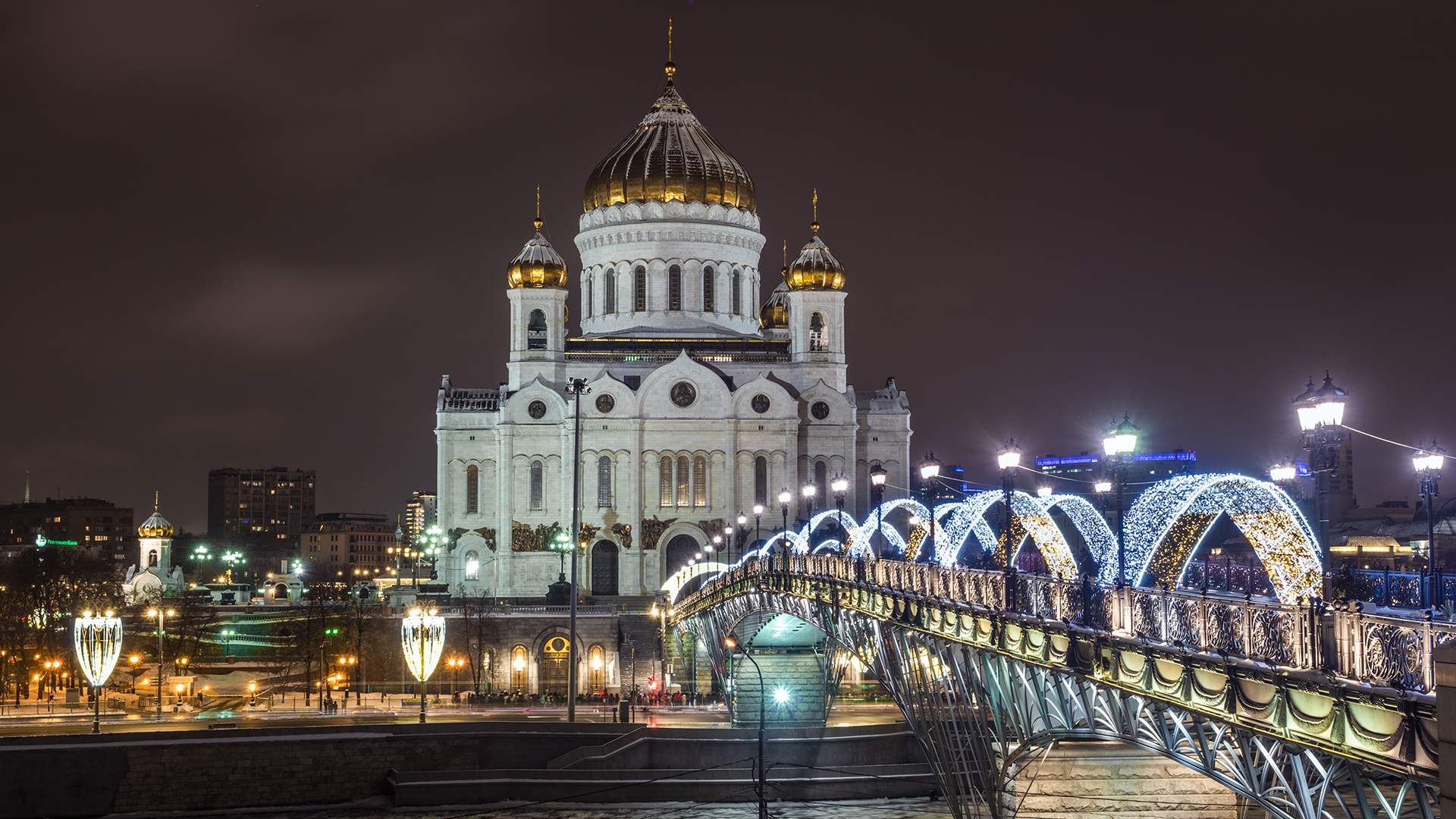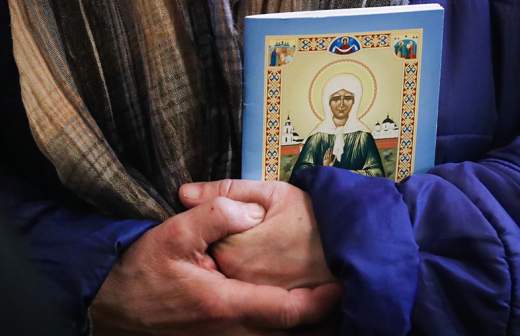- Статьи
- Local news
- An important holiday for Orthodox Christians - Christmas: traditions, strict prohibitions, omens
An important holiday for Orthodox Christians - Christmas: traditions, strict prohibitions, omens

Every year, Orthodox Christians celebrate the main church holiday, Christmas, on January 7. In 2025, the celebration falls on Tuesday. This is the day when Christians remember the miracle of the appearance of the Son of God in the earthly world. The holiday is the key event of the church year. History and traditions of Christmas - in the material "Izvestia".
Christmas: what is the church holiday on January 7
The history of Christmas is based on the biblical narrative of the birth of Jesus in the city of Bethlehem. This holiday symbolizes the greatest event in the history of Christianity - the incarnation in earthly form of the Son of God, who saved mankind from sin and destruction and gave people hope for eternal life. The Bible does not give a specific date for the Nativity of Christ. The date of January 7 (or December 25 in the Julian calendar) is conditional, but deeply symbolic.
Hundreds of years before the event, the birth of the Messiah was foretold by the prophets of the Old Testament. Thus, the prophet Isaiah said: "The virgin shall conceive and bear a Son, and they shall call His name Immanuel". The prophet Micah also predicted that Christ would be born in Bethlehem, a small town in Judea. These predictions prepared the Jewish people to wait for the Savior, who was to free them not only from earthly troubles, but also from spiritual bondage.
The mother of Jesus Christ was the Immaculate Virgin Mary. When the time for the birth of the child approached, the first general census was announced, and the parents of Jesus traveled to the homeland of his earthly father Joseph - to Bethlehem. Since all the few inns in the city were occupied, the girl was forced to stay overnight in a cave with cattle. Later, in the same cave, Jesus Christ was born. According to the Gospel of Matthew, the Magi from the east were coming with gifts to Jesus. When they saw an unusual star above Bethlehem, they went to its light and found Christ. Today, the Star of Bethlehem is one of the symbols of Christmas.
"He was born in a creche, in darkness, in extremely cramped conditions, among animals. We mark by this that the Lord placed greater inconveniences upon himself than are now placed upon many of us. And we are born in much greater comfort, and live in much greater comfort. After all, the Lord came to earth and belittled Himself for the sake of our salvation," said Nikolai Savchenko, priest of the Church of St. Peter Metropolitan of Moscow in St. Petersburg, in a conversation with Izvestia.
Christ's birth marked the beginning of His earthly ministry, and the culmination of this ministry was His suffering on the cross, death and resurrection. Christmas is the moment when the Son of God became human to atone for the sins of people. In the Orthodox tradition, this is called the incarnation (Greek "ἐνανθρώπησις").
The Orthodox icon of the Nativity usually depicts the Virgin Mary in a manger, in the rays of the Star of Bethlehem, and next to it is the Virgin Mary sitting in a prayerful posture. Icons dedicated to this event also depict shepherds, wise men, angels and animals.
The Nativity of Christ opens the period of Holy Days - days of joy and spiritual renewal. At this time, good deeds are done, gifts are given, and carols are sung to glorify the birth of Christ. In the Orthodox tradition, the holiday reminds every believer of the love of the Most High, humility and hope for salvation.
Traditions of celebrating Christmas, what to prepare for the table
Orthodox Christmas is preceded by a 40-day Christmas fast, which completes the period of preparation for the great holiday. During the fasting period fasting food (meat, poultry, dairy products) is forbidden. But the main thing during this time is abstinence not so much from food as from sinful deeds, evil thoughts, quarrels and idle entertainment. Christmas Eve on January 6 is the strictest day of fasting, when you can eat only sochivo (porridge made of grains with honey), vegetables and a little bread. It should be noted that strict fasting is observed in monasteries, while there are relaxations for ordinary believers.
In the evening of January 6, believers go to the church for the Christmas All-Night Vigil. In churches on this day the prayer "Heavenly King" is read. Then comes the song of Simeon the Hospitaller, which speaks of the offering of Christ in the Jerusalem temple, which traditionally took place on the 40th day of life.
After the liturgy the whole family gathers at home already at the festive table. The Christmas fast is over, and the meal can include meat and fish dishes. As a rule, 12 fasting dishes are also served at Christmas - according to the number of apostles.
Most often Orthodox believers prepare for Christmas smoked or salted fish, soup with meat, borscht, chicken noodles and cholodets. In the past, roasted goose or duck with apples, roasted piglet, any baked meat or fish were served as main courses.
As side dishes for the Christmas table served porridge with butter, baked potatoes or mashed potatoes, as well as vegetable salads. For dessert, you can bake a Christmas cupcake or a cake with dried fruit. On this festive day in moderate quantities it is allowed to drink cahors and other dessert wines.
It is important not to forget that Christmas is first and foremost a spiritual celebration based on prayer, charity and gratitude to God.

What should not be done on Christmas
Christmas for Orthodox Christians is a great holiday that should be celebrated with reverence, joy and in accordance with church traditions. This day not only symbolizes the birth of Jesus Christ, but also reminds of spiritual renewal, love and peace.
Like any religious holiday, Christmas is shrouded in many prohibitions and permissions. Believers on this day are strictly forbidden any profanity, it is forbidden to offend loved ones and enter into conflicts. This is considered a particularly grave sin on the holy day. Noisy parties, excessive entertainment or activities that distract from the spiritual meaning of Christmas are also not welcome.
Washing floors, washing clothes, and other household chores are forbidden on Christmas Day. This time is meant for prayer and rest.
Any attempts at fortune-telling or attracting good luck, as well as attempts to predict future events, are contrary to the spirit of the holiday. On Christmas Day, one should not abuse alcohol or have drunken feasts. Festive treats should be accompanied by moderation and gratitude to God.
The main duty of an Orthodox Christian is to participate in the Christmas service. It begins late in the evening on January 6 or early in the morning on January 7. Reading prayers at home or in the temple helps to focus on the spiritual essence of the holiday. Skipping the holiday liturgy (without a valid reason, such as illness) is considered neglecting an important spiritual duty.
"Peace between people is inextricably linked to the reconciliation of man with God. And this reconciliation became available thanks to the Incarnation of God," wrote Igor Kovalevsky, a public and religious figure, in his Izvestia column.
On Christmas Eve, it is important to purify the soul through the sacrament of confession. After the preparatory fast, many Orthodox seek to take communion on the festive day to unite with Christ. Helping those in need, donations or simple good deeds are an important part of the holiday. It is believed that good deeds on this day are especially pleasing to God. Spending time with family, supporting loved ones, and reconciling with those with whom there have been disagreements emphasize the spirit of love and peace.
Decorating the home for the holiday is a godly tradition. Spruce branches, a star (symbolizing the Star of Bethlehem), candles and icons are often used. On this day it is useful to read the Bible, in particular the Gospel of the Nativity, or other spiritual books to better understand the meaning of the holiday.
Christmas in 2025: folk and weather omens
Orthodox Christmas is one of the main Christian holidays, this day from antiquity is surrounded by a lot of folk omens, traditions and superstitions. All of them were formed over many years, and some of the traditions and omens are remnants of paganism in Russia.
The attitude of the Russian Orthodox Church (ROC) to omens and superstitions is unambiguously negative. Priests emphasize that a Christian should trust God's Providence and not follow omens that contradict the spirit of Christianity.
However, believers not only in Russia but around the world continue to follow the patterns of the past and take into account omens related to weather, harvest and prosperity.
One popular weather omen says that a snowy and frosty Christmas day promises a productive year. Bright stars in the sky speak of an abundance of berries in the coming season. A thaw on Christmas Day may indicate a wet and rainy summer in the future.
If a south wind blows on Christmas Day, the year will be hot and productive, a west wind may indicate an abundance of milk and fish, from the east - an abundance of fruit. Snowfall on January 7 promises a prosperous and successful year.
It was believed that on the night of January 6-7 the heavens open and God hears all prayers. That's why during the prayer they made a wish, which must come true. If a man is the first to come to the house on Christmas Day, it is good luck, if a woman - to troubles.
If the candle at the Christmas service burns evenly, the year will be calm. If it smokes, it means trouble. If the smoke from the oven rises straight up, the year will be successful, if it drifts on the ground, difficulties are expected. Dreams dreamt on Christmas night were considered to be prophetic.
It used to be believed that on the holy night one could easily be subjected to the evil eye. Therefore, children and young girls carried crosses or read prayers. Despite the popularity of fortune-telling on Christmas Eve (January 7-19), on Christmas Day itself fortune-telling was considered sinful. On this day it was also impossible to do hard labor, especially sewing or knitting, in order not to "tie up" their happiness.
On the Christmas table it was customary to put 12 fasting dishes (in memory of the 12 apostles), after the onset of Christmas added carnivorous dishes, which were not allowed to eat during the fast. If someone accidentally broke a dish on this day, it was considered a good sign - for good luck. On Christmas Day one should not quarrel or swear profanely, otherwise the whole year will pass in failures. It was forbidden to clean the house and do laundry: it was believed that this was a way to "sweep away" happiness.
Today, many Orthodox believers preserve folk traditions, but try to separate them from the religious essence of the holiday. The Church encourages us to celebrate Christmas in a spiritual way: to attend services, pray, do good deeds and avoid pagan customs.
Переведено сервисом «Яндекс Переводчик»









